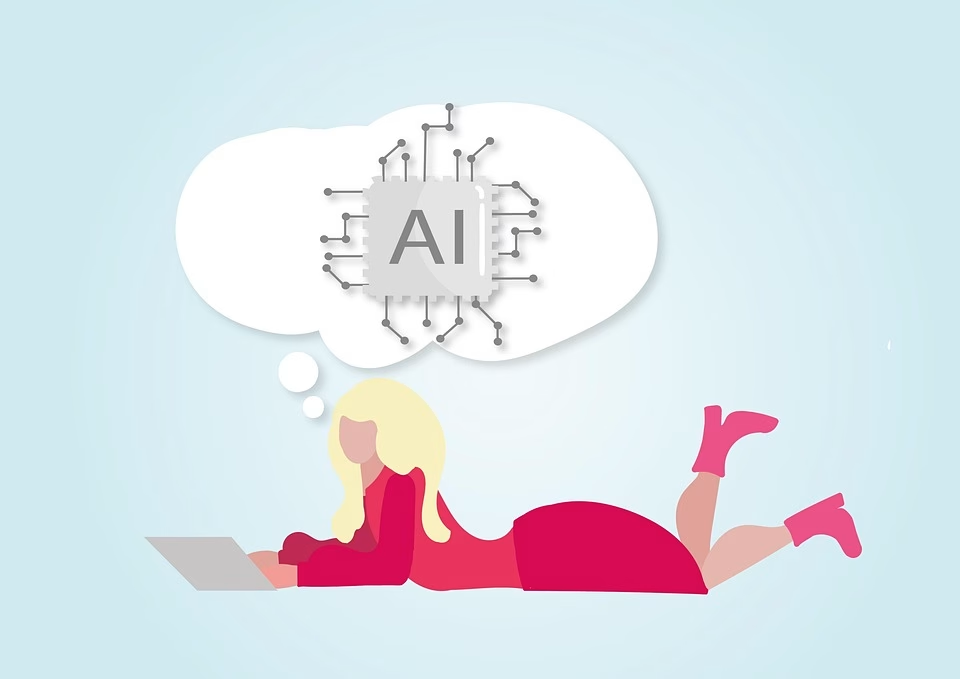ChatGPT Alternatives: A Comprehensive Guide to AI Language Models

As the world steps into 2025, the confluence of artificial intelligence (AI) and automation has reached unprecedented levels. From generative AI tools reshaping creative workflows to advanced automation systems optimizing business processes, the landscape is evolving at breakneck speed. This article explores the latest advancements in AI, highlighting their implications for businesses, individuals, and the broader tech ecosystem.
The Core Development: Next-Gen Generative AI Tools
In early 2025, several groundbreaking generative AI tools were unveiled, notably by major players such as OpenAI, Google AI, and Microsoft. These tools leverage advanced machine learning models for creating text, images, and even music, marking a pivotal shift in how content is produced. OpenAI’s latest iteration of ChatGPT offers an enhanced user experience with real-time collaboration features and improved contextual understanding, allowing businesses to generate high-quality content at scale.
Additionally, products like Google’s Gemini and Microsoft’s Copilot have integrated generative capabilities that streamline creative processes, making them invaluable for professionals across various sectors. These tools utilize large language models and neural networks that have been trained on diverse datasets to produce nuanced outputs that adapt to user needs.
Practical Applications: Transforming Workflows
The applications of these generative AI tools extend far beyond content creation. Key use cases include:
-
Marketing: Businesses can automate the generation of personalized marketing materials, from ad copy to social media posts, thereby enhancing customer engagement.
-
Software Development: Developers are leveraging tools like GitHub Copilot to automate code suggestions and debugging, significantly speeding up the development cycle.
-
Customer Service: AI-driven chatbots powered by tools like ChatGPT are improving customer support efficiency, providing immediate responses to inquiries and resolving issues without human intervention.
- Healthcare: Generative AI is being utilized to create patient reports, analyze medical data, and even assist in diagnostic processes, thus improving healthcare delivery.
Benefits & Challenges: A Double-Edged Sword
While the benefits of these advancements are substantial, they come with their own set of challenges and ethical considerations:
Benefits:
- Increased Efficiency: Businesses harnessing AI can achieve significant time savings and productivity gains.
- Enhanced Creativity: Generative tools allow individuals to explore new creative avenues, unbounded by traditional limitations.
- Cost Reduction: Automating content generation can lead to lower operational costs over time.
Challenges:
- Ethical Concerns: Issues such as data privacy, ownership of generated content, and the risk of misinformation remain hot topics.
- Job Displacement: As automation increases, the fear of job losses in certain sectors looms large, necessitating a shift in workforce skills.
- Regulatory Hurdles: Governments are grappling with how best to regulate AI technologies without stifling innovation.
Industry/Market Impact: A New Era of AI Adoption
The integration of generative AI into business frameworks signifies a shift toward more automated operational models across industries such as finance, healthcare, and creative arts. Currently, reports suggest that nearly 75% of enterprises are planning to adopt or have already implemented some form of AI-driven automation by the end of 2025.
This trend follows the broader acceptance of AI as an essential business strategy, as organizations recognize its potential to drive scalability and innovation. A recent report from McKinsey indicates that over 50% of businesses have seen a return on their AI investments, largely due to improved operational efficiencies and customer satisfaction.
Expert Insights: Voices from the Field
David Hanson, CEO of Hanson Robotics, states, "The emergence of generative AI tools not only democratizes creativity but also enhances human capacity for imagination in untold ways. However, balancing innovation with ethical considerations is paramount as we move forward."
In a similar vein, Dr. Emily Chen, an AI researcher at Stanford, notes, "As we harness the capabilities of generative AI, we must remain vigilant about its potential misuse. Education and policy development will play crucial roles in shaping a responsible AI landscape."
What’s Next: Roadmap for AI and Automation
As we look toward the horizon, several trends are poised to shape the future of AI and automation:
- Enhanced Personalization: Expect AI tools to offer deeper personalization thanks to advancements in user behavior analytics.
- Greater Human-AI Collaboration: Tools that facilitate seamless integration between human input and AI capabilities will become increasingly prevalent.
- Expanded Regulations: As generative AI becomes mainstream, expect a push for more robust ethical standards and regulatory frameworks to ensure responsible use.
Key Takeaways
- Generative AI is reshaping industries by enhancing automation and creativity.
- While the benefits are clear, ethical and regulatory challenges remain crucial in navigating the AI landscape.
- Future advancements will require a balance between innovation, societal impacts, and personal data protection.
SEO FAQs
What are the best AI tools in 2025?
The leading AI tools in 2025 include OpenAI’s ChatGPT, Google’s Gemini, and Microsoft’s Copilot, offering advanced capabilities for a variety of applications.
How is AI changing business automation?
AI is streamlining processes by automating repetitive tasks, improving efficiencies, and offering advanced analytics that drive decision-making.
What’s new with ChatGPT and OpenAI in 2025?
In 2025, OpenAI’s ChatGPT has integrated real-time collaboration features, enhancing its usability for businesses and individuals alike.
Which industries benefit most from AI automation?
Key industries benefiting from AI automation include marketing, software development, healthcare, and finance, with each experiencing significant productivity gains through the adoption of AI tools.
As AI continues to evolve, keeping abreast of the latest developments will empower organizations and individuals to harness its full potential to drive innovation and efficiency.
🚀 Try Ancoia for FREE today and experience the power of business automation!
🔗 Sign up now and get a 7-day free trial



